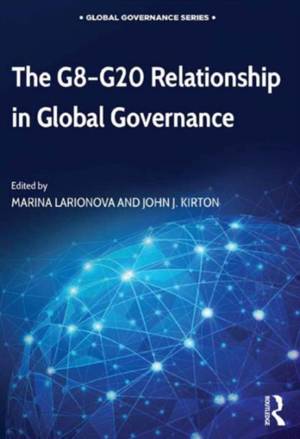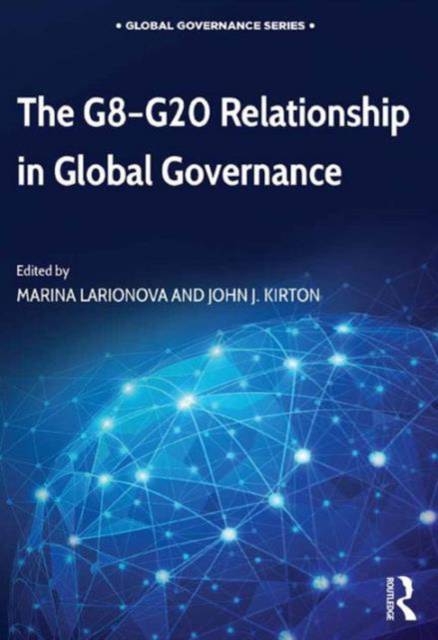
- Afhalen na 1 uur in een winkel met voorraad
- Gratis thuislevering in België vanaf € 30
- Ruim aanbod met 7 miljoen producten
- Afhalen na 1 uur in een winkel met voorraad
- Gratis thuislevering in België vanaf € 30
- Ruim aanbod met 7 miljoen producten
Zoeken
The G8-G20 Relationship in Global Governance
€ 305,45
+ 610 punten
Omschrijving
This volume explores the summits' performance, the division of labour during their coexistence, their comparative strengths and limitations, and how the future partnership could be improved to benefit the global community. The authors explain the recent evolution and performance of the G8 and G20 summits and their evolving empirical relationship. They consider the G8/G20 relationship with other actors engaged in global governance, notably the major multilateral organizations and civil society. They assess G7/8 and G20 effectiveness and accountability. And they identify, based on this empirical and analytical foundation, how the relationship can be improved for today's tightly wired world.
Specificaties
Betrokkenen
- Uitgeverij:
Inhoud
- Aantal bladzijden:
- 312
- Taal:
- Engels
- Reeks:
Eigenschappen
- Productcode (EAN):
- 9781409439189
- Verschijningsdatum:
- 28/08/2015
- Uitvoering:
- Hardcover
- Formaat:
- Genaaid
- Afmetingen:
- 170 mm x 244 mm
- Gewicht:
- 698 g

Alleen bij Standaard Boekhandel
+ 610 punten op je klantenkaart van Standaard Boekhandel
Beoordelingen
We publiceren alleen reviews die voldoen aan de voorwaarden voor reviews. Bekijk onze voorwaarden voor reviews.







